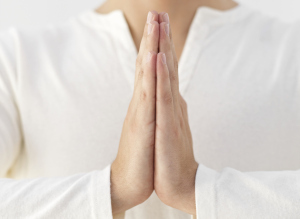 I know that I would be a happier person if I could keep my online chatter to a minimum, spend a maximum of two hours online, and check my email much like I eat: four or five times a day.
I know that I would be a happier person if I could keep my online chatter to a minimum, spend a maximum of two hours online, and check my email much like I eat: four or five times a day.
So why don’t I do that?
Because I am using all the will power that I have–and scientists have declared we have a limited amount, like coal–towards better eating, sleeping, and exercising. I keep my caffeine intake to two cups; I don’t drink alcohol; I exercise at least five times a week for an hour or more; I try to eat carbs sparingly, and I stay away from white flour when it’s mixed with pure sugar because I know I’ll be cussing in front of my kids an hour after I eat that stuff.
I am pro-health, pro-mindfulness, pro-holistic living.
Which is why my addiction to Twitter, Facebook, LinkedIn and all the other social networking programs has me puzzled.
I completely agree with Maggie Jackson, the Boston Globe columnist who recently wrote “Distracted: The Erosion of Attention and the Coming Age.” She says, essentially, that all of our cool gadgets are robbing us of intimacy. The technology itself isn’t. But the distraction that the gadgets cause definitely are. Gone is the capacity to concentrate on one person, place, or thing, which she argues are the building blocks of a culture.
My theory of the day is that distraction–all the social buzz that keeps us from focusing on one thing at a time–is desired because it is so much easier than intimacy, which requires focusing on one thing at a time. Moreover, unplugging and uni-tasking demand the same kind of attention that a loving marriage does (and we know the stats on those aren’t pretty). Focus means staying with something or someone through times of confusion and rebellion and rage. It means apologizing when you think you’re right. And setting the table when you’d rather read the paper. Concentration involves staying planted in one garden when rumor has it there is better soil, water, and light at another place. It’s loyal and patient. And selfless. It does not seek to be congratulated or commended or even named.
Ultimately I think the task of unplugging is one of healing, which is why it is so difficult and painful.
Being quiet for a period of time each day (I aim for 15 minutes, but again, anything is better than nothing) is much harder than getting my kids dressed for school, pulling together breakfast, swimming 120 laps, or even writing a chapter of a book. It takes discipline and self-love, two things that I could use more of.
For me, standing still is so much harder than running.
Spiritual author Henri Nouwen writes:
As long as you run from where you are and distract yourself, you cannot fully let yourself be healed. A seed only flourishes by staying in the ground in which it is sown. When you keep digging the seed up to check whether [it has email … kidding] it is growing, it will never bear fruit. Think about yourself as a little seed planted in rich soil. All you have to do is stay there and trust that the soil contains everything you need to grow. This growth takes place even when you do not feel it.
* Click here to subscribe to Beyond Blue and click here to follow Therese on Twitter and click here to join Group Beyond Blue, a depression support group. Now stop clicking.

